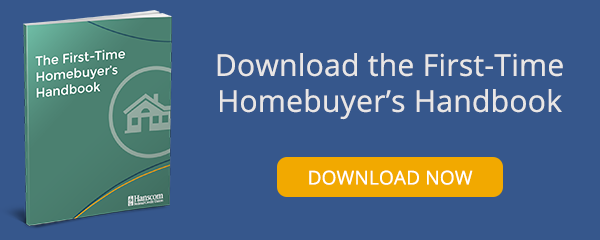Congratulations, you're pre-approved for a mortgage and your dream home is under contract. You've submitted all the paperwork to your mortgage lender and everything seems to be going smoothly. That is, until you do one of these six things:
1. Leave Your Job
Your pre-approval was based on the proof of income you provided to your lender, so leaving your job can cause some big headaches in your final mortgage approval. Lenders want to see a steady source of income, ideally in a job you've had for a couple years. Sometimes leaving one job for another during the approval process can't be helped; you may need only to provide a pay stub for your new position in the same industry for higher pay, for example.
The real trouble occurs when you become unemployed, you switch careers, or the pay in your new job is less than what you made before or fluctuates through commissions or hours worked. Your lender may withdraw approval based on any of these changes to your salary, so the key takeaway is: Save your career jumps for after your mortgage closing.
2. Make Large Purchases on Credit
Need a new car? Hit the brakes on that purchase. Appliances for your new home? Pull the plug on that idea. Do not make any large purchases that will substantially affect your debt-to-income ratio, something your lender has taken into consideration when they offered you a pre-approval letter. When they see you've increased your debts, that's going to affect the terms of your pre-approval and you may find yourself with a new car without a new driveway or appliances that have no home. Instead, put those purchases off until you're comfortable with your mortgage payments and know that you can afford to take on new debt.
Does this mean you should not use your existing credit cards? No. But you should keep your spending consistent and pay off your cards in full each month to keep your debt-to-income ratio from fluctuating during the approval process.
3. Pay Your Bills Late
You've worked hard to get your credit score to where it needs to be for a home purchase, so this is not the time to forget to pay your student loan or skip a credit card payment. A new delinquency on your credit report can be disastrous for your credit score and your mortgage application, so at all costs you want to avoid this.
If you're having trouble keeping up with your day-to-day bills, you need to get a handle on debt before you make a purchase on a home, which you could possibly lose if you're unable to make mortgage payments on time. We have many resources that can help you get your debt under control so you're in the best possible position to become a new homeowner.
4. Open or Close New Credit Cards
It can feel uncomfortable telling a cashier that you do not want to save 10% on purchases, but adding a new line of credit to your credit report is going to do a couple things that won't help your mortgage application. It will necessitate a hard credit pull, which will tell your mortgage lender you're out shopping for credit, which can indicate cash flow issues, and it will impact your credit score negatively, which could impact the rate you get on a mortgage.
Closing accounts isn't a good thing to do either because that will decrease your available credit, which will increase your credit utilization, another thing that your lender wants to stay low. So just say no to the credit offers and deals while you're in the mortgage process. Ten percent off at the register can easily stall your mortgage application.
5. Change Bank Accounts
You've probably submitted a small mountain of financial paperwork to your mortgage lender so quitting one financial institution for another during the process is going to be more paperwork for not just the lender, but for you. You'll need to explain why you made the change, then provide new paperwork for your new account(s), which may significantly delay the process of getting a mortgage loan. As with almost any other change we've mentioned here, save this move for when you've closed on your mortgage.
6. Make Large Deposits or Withdrawals
You might think that a lender would welcome a hefty cash deposit at their institution, but instead, Mr. or Ms. Moneybags, you're going to make them nervous when you come sailing through their doors with a big bag of Benjamins.
They're going to want to know where the money came from, who gave it you, and why you received it. They're not being nosy (well, maybe a little) but they have some good reasons for these questions. First, if you borrowed the money, that's going to send up red flags. Your mortgage is being approved based on your existing loan obligations; adding new ones during the process is a big no-no as it will increase your debt-to-income ratio. And second, if the money is a gift, that can cause problems, especially with the person giving the gift as there are strict gift tax laws they need to follow.
If you receive gift money, your lender will want you to confirm this with a formal gift letter detailing the amount of the gift and that it's not expected to be paid back. They may also request to see the gift-giver's bank statements to ensure the money is coming from a legitimate source. If your parents or family members want to give you gift money for a down payment, it's best to make the transfer so the money can sit in your account for at least two months before you start the mortgage process. This "seasons" the funds and you won't have to provide gift documentation to your lender.
As for withdrawals, again, seeing large amounts disappear from your savings, checking, or other financial accounts is going to make your loan officer ask questions and request documentation.
A mortgage is a complicated financial transaction that requires a lot of oversight, not just from your financial institution, but from the government. And though it can seem like a lender is asking you to jump through hoops by providing so much documentation, it's also to protect you from getting into a debt situation you can't handle. So when you're ready to buy a home, remember: stay calm and save big financial moves when you're settled into your new home.
Our First-Time Homebuyer's Handbook can help you navigate the process of finding and financing your first home. It's free and you can download it here.
Others are reading:




.jpg)









Comment